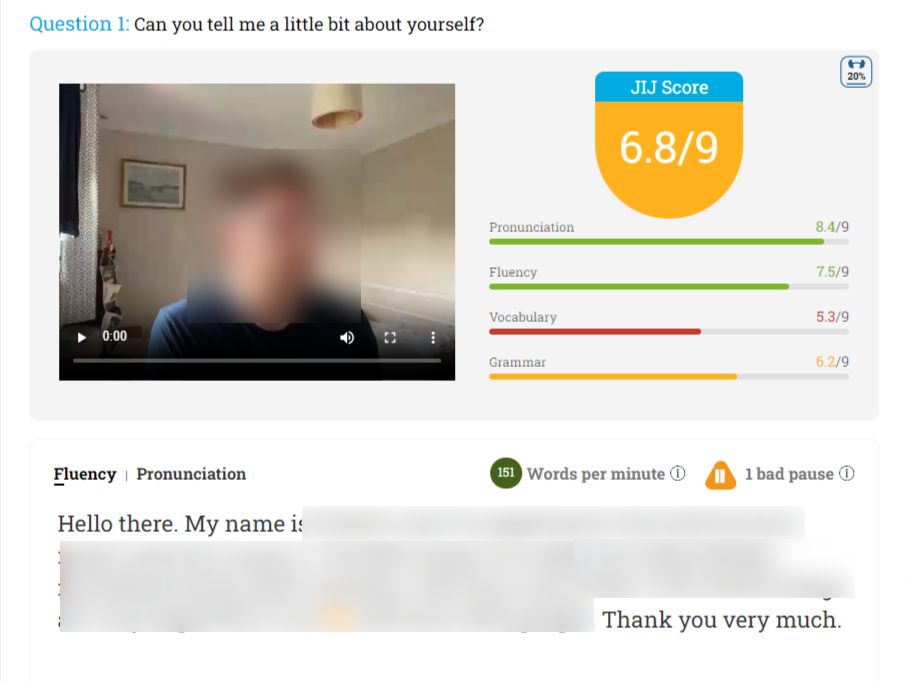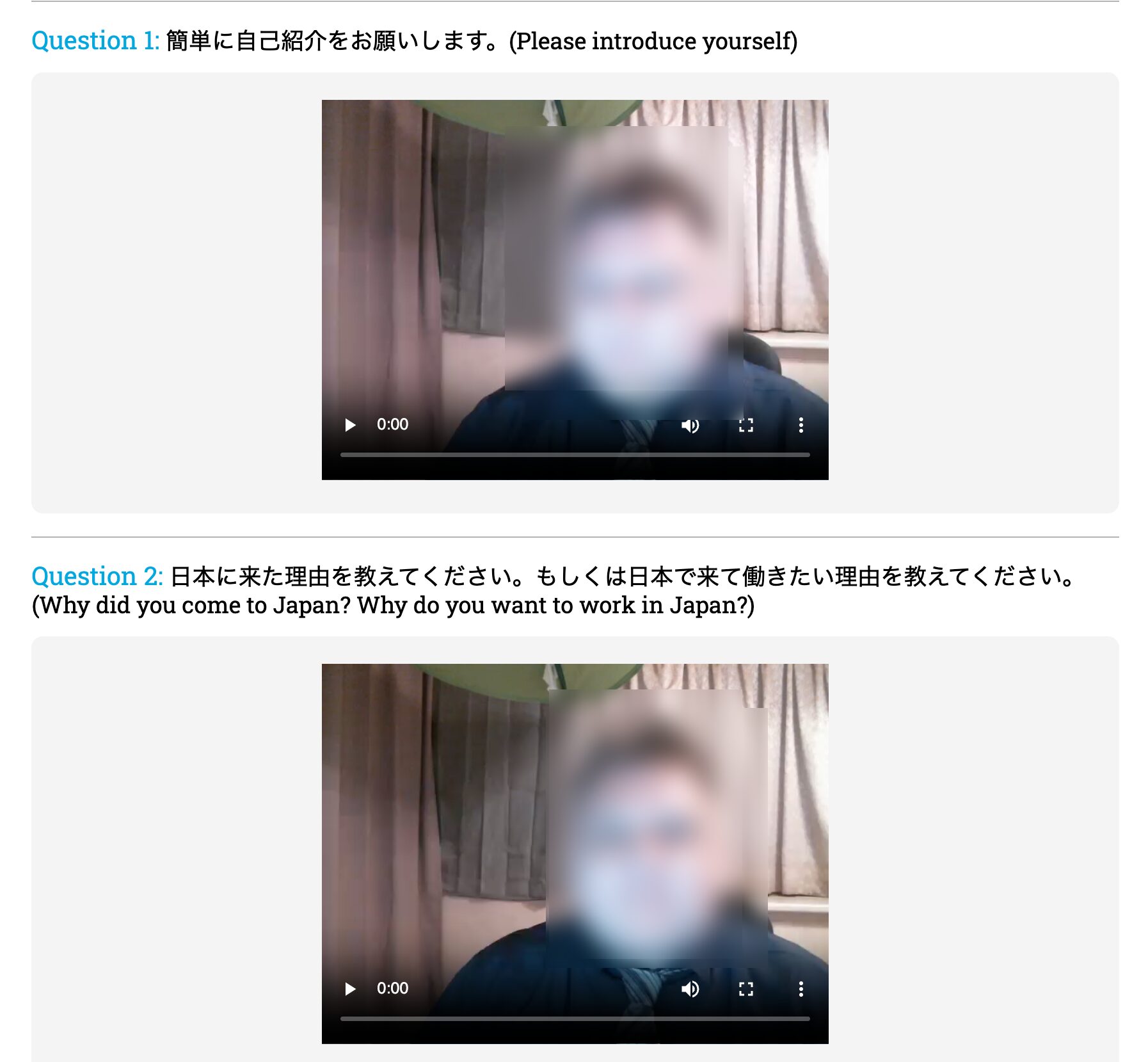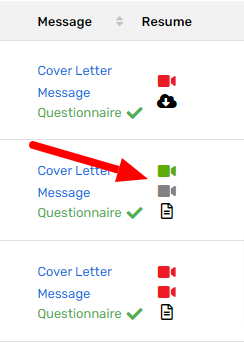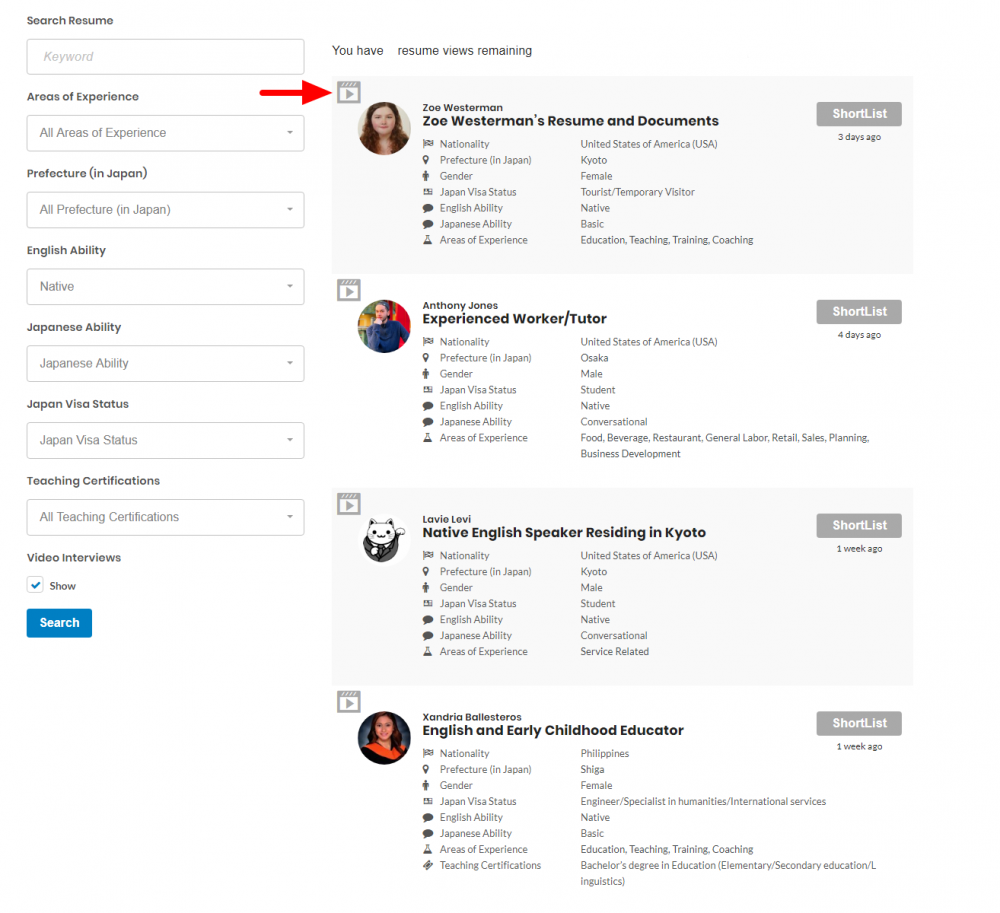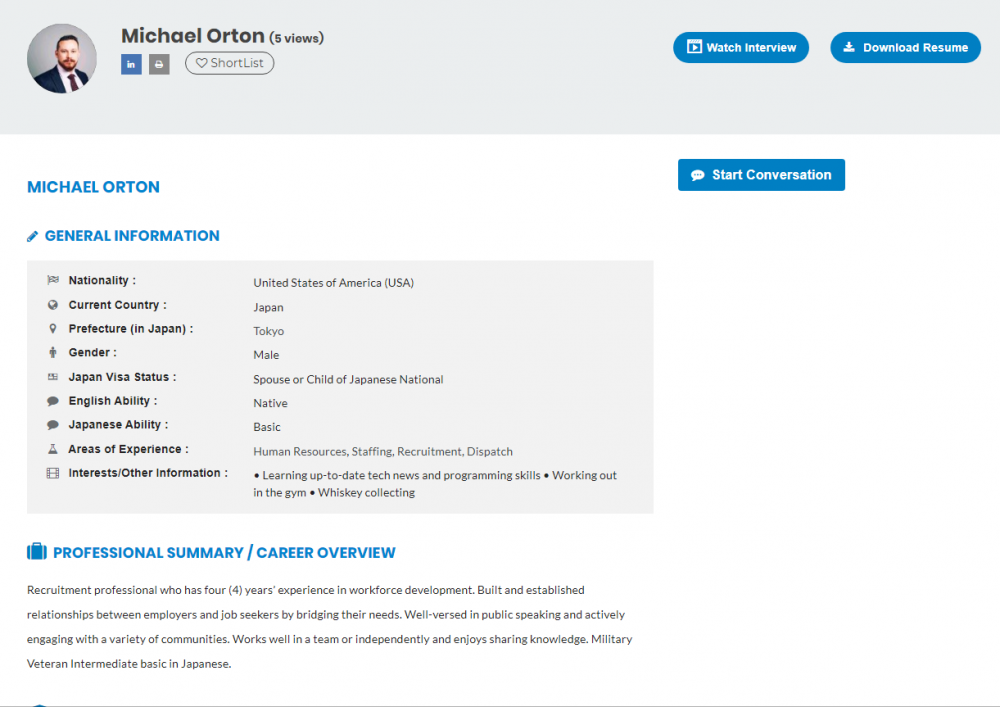Employers sometimes ask us about how to increase the response to their job listings. While there can be any number or reasons (i.e., compensation, location, requirements, etc.), the issue is often a poorly written job description.
Just as employers only skim the first part of a resume or cover letter, job seekers do the same with job postings. If it does not attract their attention, they move to the next opportunity advertised.
Tone of the job description
Employers often make the mistake of only including their requirements instead of appealing to what would motivate a candidate to apply for the job. In addition to your needs, you will need to write your job description, which is an advertisement, to include items that would relate to their personal and professional goals, interests or other items which may motivate them.
Just remember to “think like an applicant” and write what would make you apply for the job.
Job Title
Specific job titles are better than general ones. One should describe the role accurately.
Bad Title: Teacher
Good Title: Certified Children’s English Teacher
Bad Title: Programmer
Good Title: Senior Computer Programmer with C++ proficiency
Job Description
Here are some items that can be found in an effective job description:
- Attention-grabbing opening: Open with a strong, attention-grabbing summary which provides an overview of your company and expectations and responsibilities for the position.
- Why is your company and position special? There is a lot of competition for the best candidates and explaining why your company and job are great will get you candidates that want your job, not any job, even at a lower salary.
- Highlight the day-to-day activities of the position. This will help candidates understand the work environment and the activities they will be expected to perform on a daily basis.
- List of skills required (hard and soft) – make sure the job description explains the level of required education, language ability, experience necessary, certifications and technical skills for the role. You may also include soft skills, like communication and problem solving, as well as personality traits that you envision for a successful hire.
- Make your list of requirements concise. You are not making a shopping list or a wish list! Only list the absolute requirements, not a list of everything the ideal candidate possesses. Keep your list concise. It is rare for you to find a candidate that possesses everything you are looking for. If you give a huge list of required skills, you will scare potential applicants away and may miss out on applications from great candidates who would make fantastic employees with just a little extra training.
- Peace of Mind. Especially for smaller and newer companies, you will want to explain why the job seeker should feel comfortable joining your company.
Salary
Listings that do not include a salary (or salary range) get far fewer applications than those that do. Even if the salary range is very wide, it is good to list what this is and what must be done to achieve the hiring listed salary.
Terms like: competitive pay, salary negotiable, compensation commensurate with experience, market rates and uncapped bonuses scare away potential candidates. It tells the job seekers little and is one of the “red flags” for avoiding a bad company. While your intention may be to pay qualified candidates a higher salary, it gives the impression that you will try to negotiate them into a lower salary.
Benefits
Be sure to list both the monetary and non-monetary benefits of the job. If you offer company housing, be sure to mention it along with the market rate for the apartment in your area.
Other benefits can include training, opportunities for advancement, location, flexible working hours, health insurance, professional development, etc.
Company Profile Page
All postings on Jobsinjapan.com include a Company Profile page (update the Company Profile at the My Profile folder).
While it is informative to state the facts about your company, be sure to use this page to give the job seeker some information that they cannot find on your company’s website. For example, you can write about: 1) Why is your company a great place to work, 2) Company culture, 3) Employee benefits, etc.
Reducing the number of unqualified applications
Applying to jobs online is too easy, just a few clicks is all it takes. While convenient for the job seeker, it also encourages them to apply for jobs which they are quite qualified for. This is not just with Jobsinjapan.com but with all online job resources.
To address this problem, jobsinjapan.com has a Screening Questionnaire function where you can filter out only relevant applicants, saving you time, by “testing” them when they apply for your job.

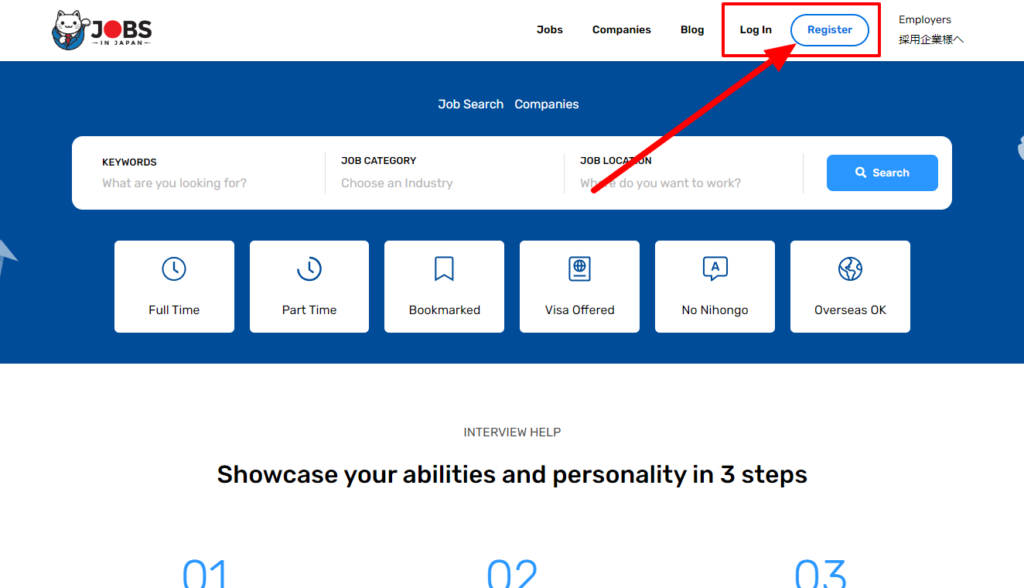
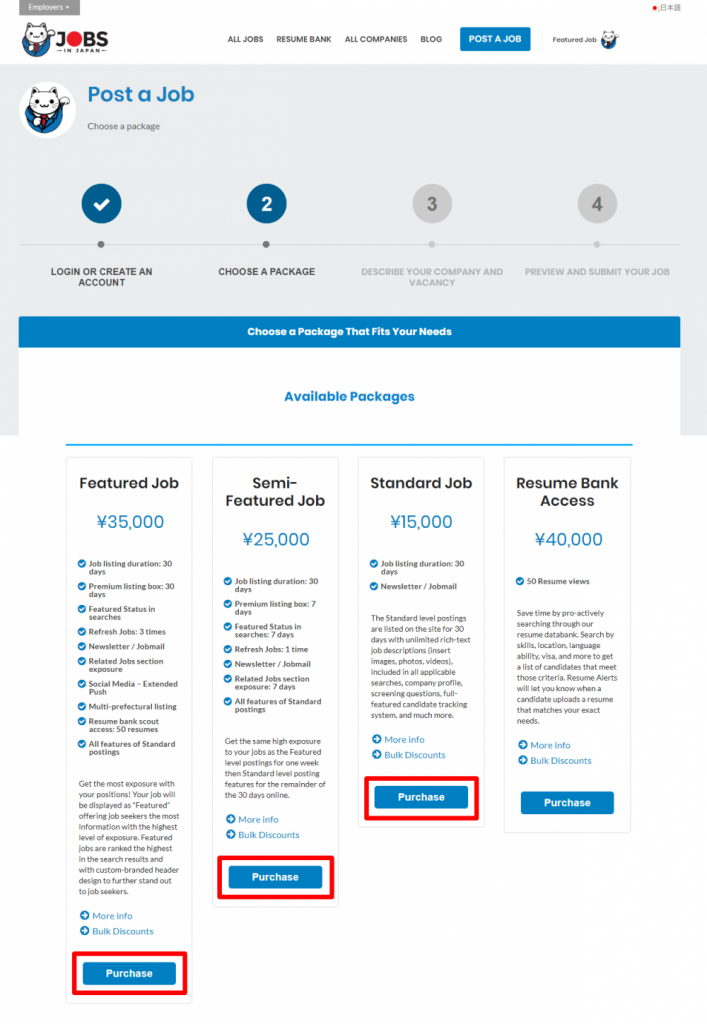
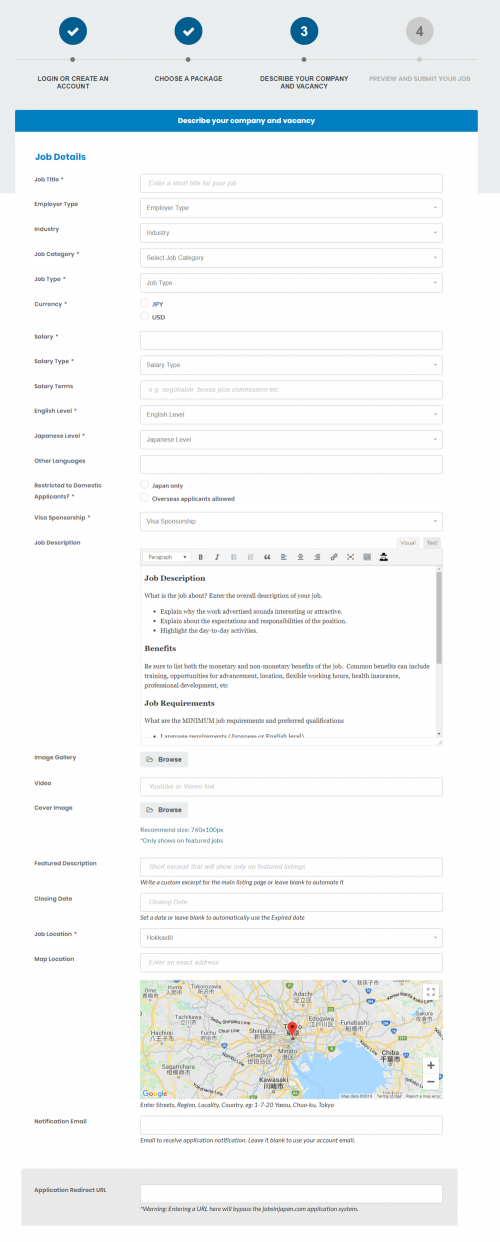

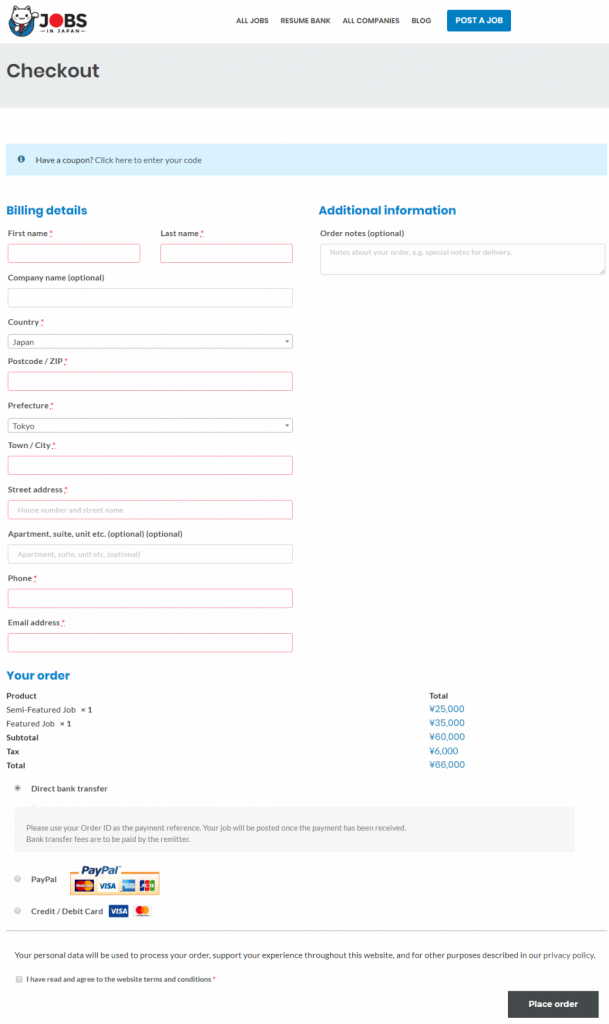

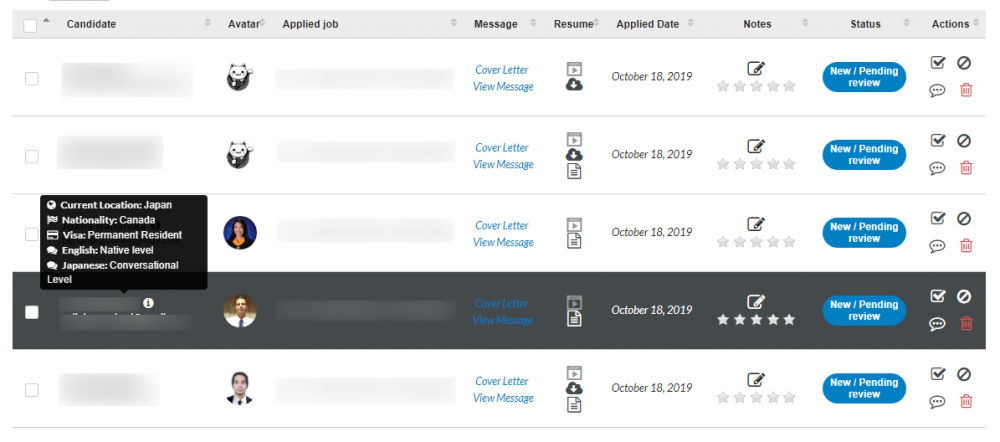
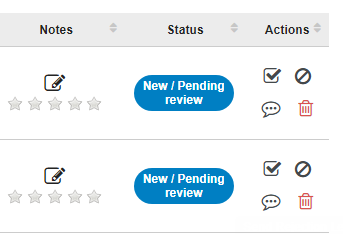
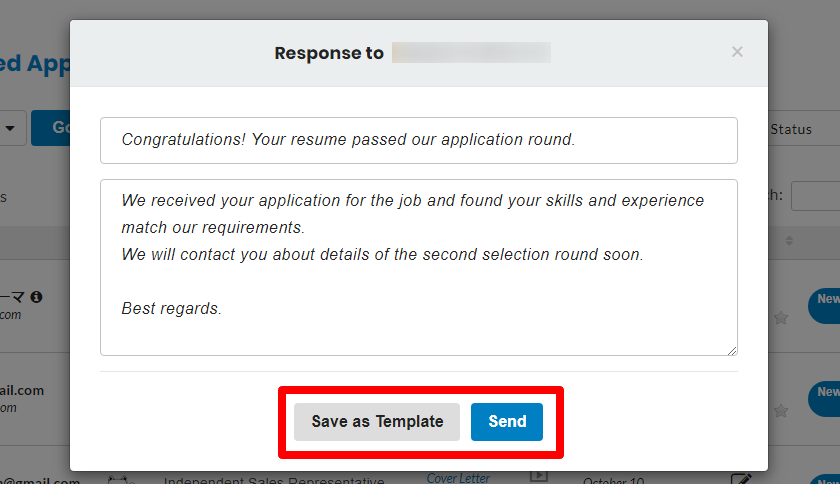
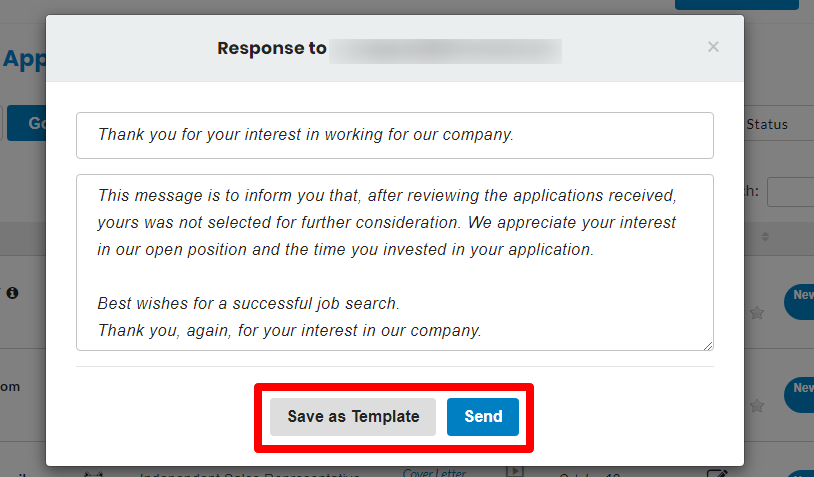
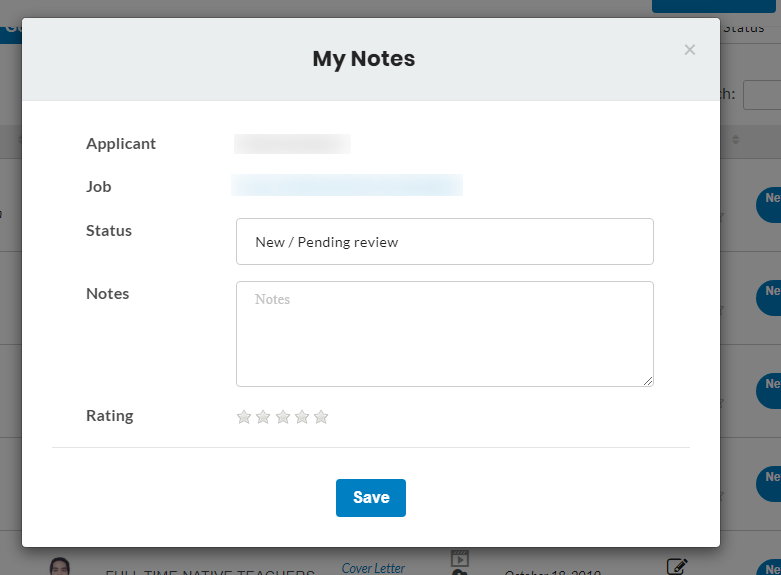
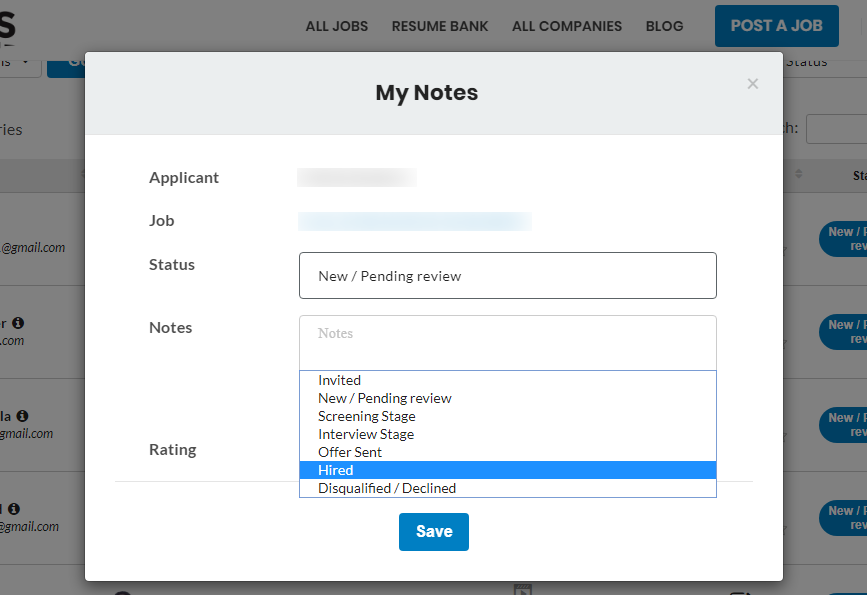
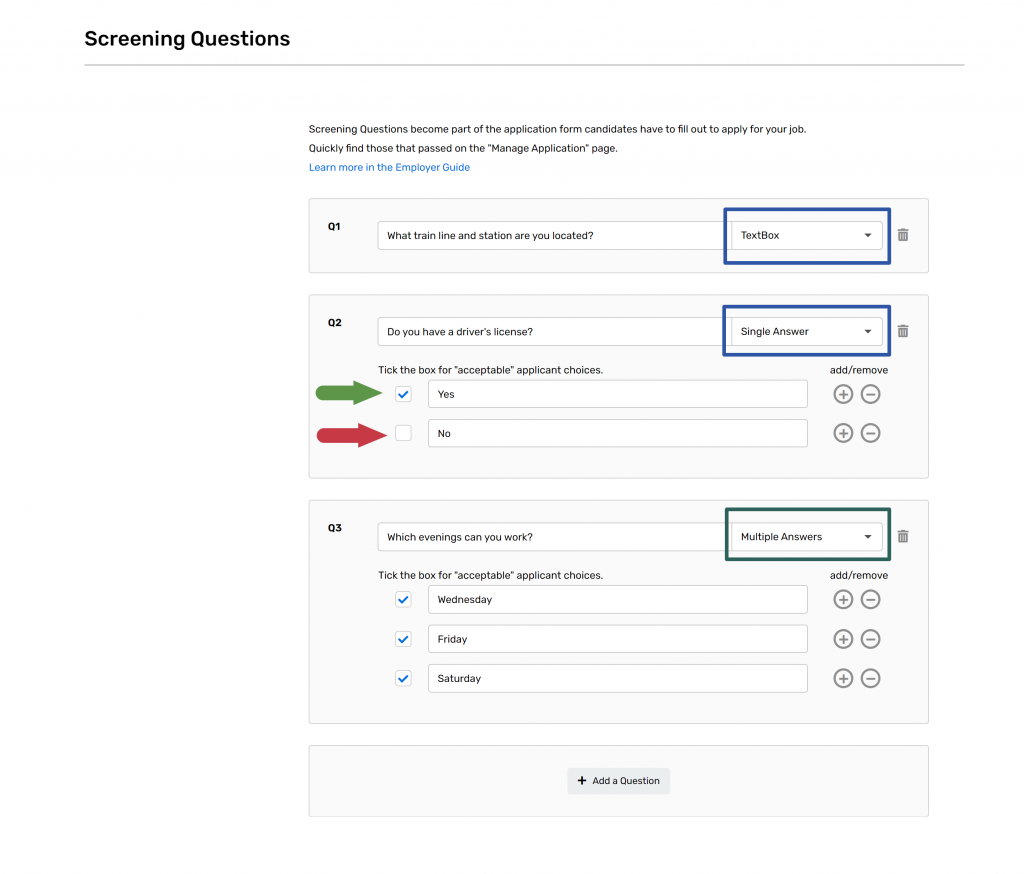
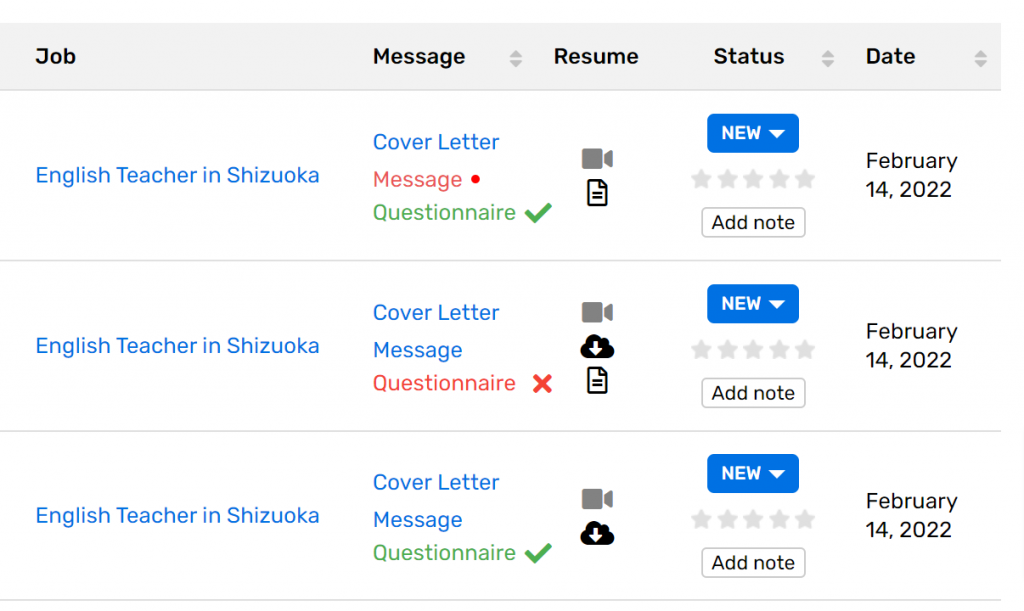
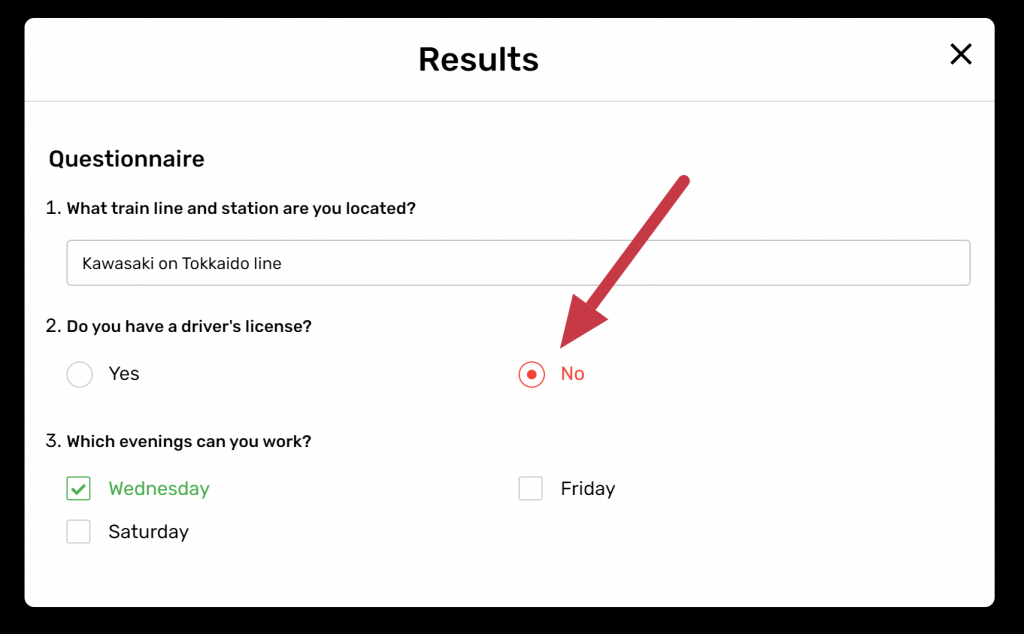
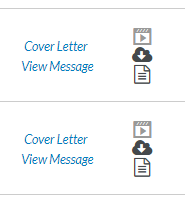
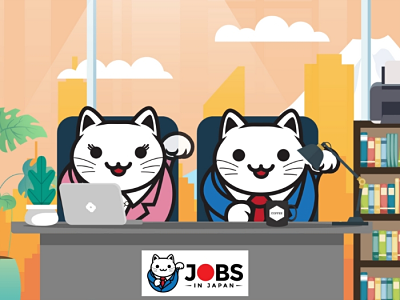
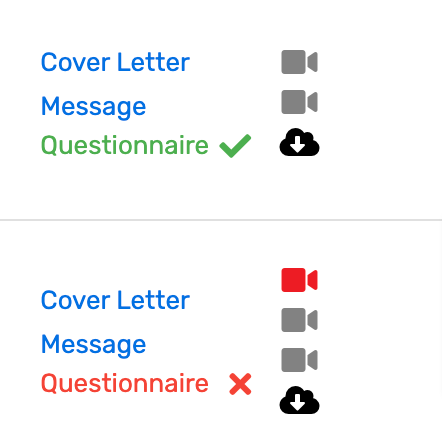 We encourage all job seekers to take the First Round Video Interview in advance of applying to jobs; however, many do not do this. In this case, the icon will be gray.
We encourage all job seekers to take the First Round Video Interview in advance of applying to jobs; however, many do not do this. In this case, the icon will be gray. 
